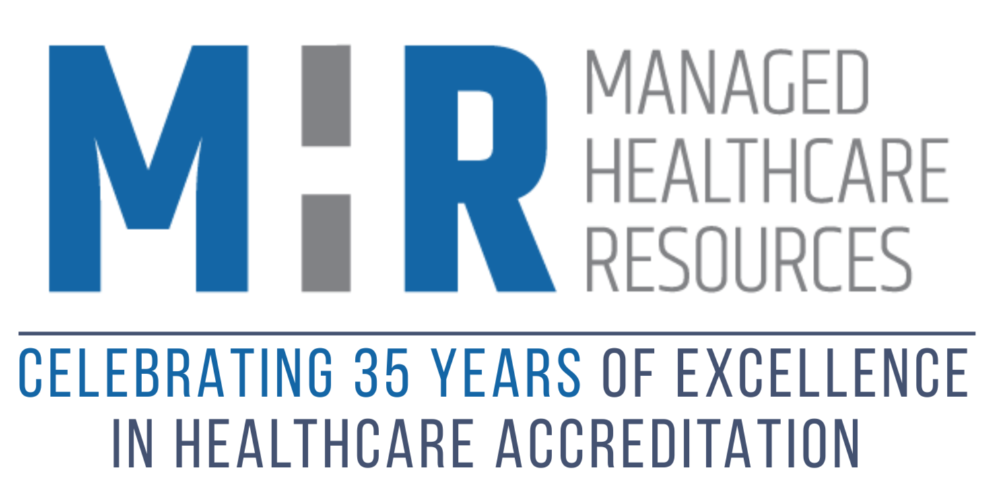
6 COMMON WAYS ORGANIZATIONS CAN LOSE POINTS IN AN NCQA SURVEY
……AND HOW TO AVOID THEM!
Have you ever seen the sign ‘Plan Ahead” where the “d” is falling off because they didn’t plan?

To avoid stress and drama for surveys, it takes careful planning. Plan and prioritize well before your NCQA survey to avoid losing points. Organizations that work with MHR benefit from a customized Plan with the goal of putting your organization in the best position possible to help you earn the maximum points. Our experience has shown six areas of focus in which to start.
- Look-back period: What is an NCQA look-back period, and why is it important? NCQA explains the look-back period as the time in which the organization must demonstrate performance against NCQA requirements. The look-back period begins when the organization submits its survey to NCQA, then “looks back” throughout the required timeframe. Periods typically range from 6 to 24 months and vary by survey evaluation option and new standards, elements, and factors. If some of your data sources, including file reviews, documented processes, reports, and materials, do not meet the required look-back period, you can lose points. The most problematic issue we encounter is not having a compliant documented process or a program document that spans the look-back period. That is an automatic zero score and can place you under a Corrective Action Plan if it’s a must-pass requirement. MHR has a methodology for
identifying risks “prior to the look-back period” to jump-start the next accreditation cycle to assure full preparation and risk identification. - Must-Pass Elements: Elements designated by NCQA as “Must-Pass” are just that; organizations must pass these elements for a successful survey. If your organization does not “meet” the element, then a Corrective Action Plan (CAP) is implemented. Three or more elements not “Met,” could result in a Denied Accreditation status. Most must-pass elements for Health Plan Accreditation are in the Utilization Management and Credentialing Standards, such as in UM and credentialing file reviews and the new Systems Controls auditing.
- Critical Factors: Aren’t all factors within the standards critical? While all factors are required, the ones marked with an asterisk (*) are considered “critical.” These factors are essential components of the specific elements and exist to protect your members. If a critical factor is absent, you cannot earn a “Met” for that element.
- Data Collection or IT System Changes: When reviewing annual standard changes, it is always prudent to evaluate if any data collection or system modifications are needed. For example, is your organization collecting all necessary data for health equity and population health? Are changes required to your documented processes, reports, materials, and files to align with data collection needs? Knowing that most changes to IT systems require sufficient lead time, you must also factor in your look-back period to ensure the changes are done before your look-back period begins. MHR prepares a standards changes presentation every year (Annual Standard Changes) after standards are published so organizations can “plan ahead"!
- Analysis: Why is analysis important? Analysis gets to the point of what is most significant for continuous improvement for your organization and your members. If the proper assessment is lacking, chances are you may not be working on your most impactful threats and opportunities, or you could be intervening in the same way that has not proven to increase quality. Are your results the same each year? That is a key indicator that you are not accurately identifying barriers nor implementing the correct actions to remove barriers and improve results in care and service. An analysis is required in multiple standards sets and is one of the most challenging areas that affect the organization. NCQA’s requirements have numerous parts that must be present, some of which are a detailed quantitative and qualitative analysis that highlights comparative data, trending, and graphical displays, and more. If your analyses are not complete, you have a chance of dropping your scoring for that element. MHR has developed a template for Analysis to provide continuity in capturing the correct data and measuring results.
- Delegates and Vendors: NCQA explains delegation as an organization giving another entity the authority to perform an activity that the organization would otherwise perform to meet a requirement in the NCQA standards and guidelines (Appendix 2 –Standards). When delegating an activity, for example, utilization management, a written Delegation Agreement is required between the entities. This Agreement is a material that is reviewed and scored by NCQA for all surveys. In contrast, in a vendor relationship, the organization does not give another entity the authority to carry out a function that it would otherwise perform; it’s more like a purchasing relationship; however, NCQA still reviews your mutually agreed-upon document and evaluates responsibilities of both entities.
Next, read about one organization impacted by the timing of its system changes and its look-back period.
This organization was undergoing a First Survey for Health Plan Accreditation. Time frames for any system changes were tight. System changes and processes to collect the needed data had to be in place throughout their look-back period. Barriers were identified as:
- The management accountable for NCQA accreditation was new.
- The IT department did not have the band-with to make immediate system changes.
- Most staff responsible for various policies and reports were new and didn’t understand the relevance of the look-back period.
- Steps to track and monitor requirements were not in place.
By the time the organization contacted MHR to assist with survey preparation, the organization missed its time frame to make the system changes before the look-back period began.
So, what could be done at this point? MHR guided the organization to demonstrate its compliance with the standard despite being outside the look-back period. This positioned them to be compliant for future surveys. MHR coached their management and subject matter experts on look-back periods and held a Training session for a larger group on the Basics of Accreditation. Because they were prepared with compliant documentation, they had a successful survey and were well-positioned for their Renewal Survey in three years.
Regardless of where you are in your NCQA accreditation cycle, take these Calls to Action.
- Plan for resources and processes to be in place to meet requirements within your look-back period. Do this prior to the look-back period starting.
- Communicate your look-back period, must-pass elements, and critical factors to all stakeholders. MHR has an “NCQA Boot Camp” presentation that may be helpful for those new to accreditation.
- Identify your gaps and assign responsibility for making the changes to all data sources.
- Schedule Training such as on Analysis, Annual Standard Changes, Basics of Accreditation, or Delegation.
- Check for continued compliance, including mock reviews.
- Read NCQA’s Front Matters Policies and Procedures of the standards for more detailed information.
- Keep your Delegation Worksheet updated and read Appendix 2 of the standards so you are aware of delegates vs. vendor relationships.



